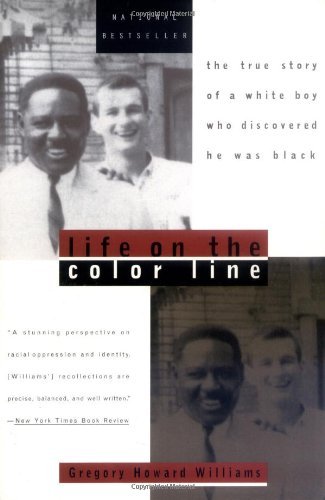
Black Boy
Book Description
Trapped in a world of poverty and prejudice, a young boy's fight for identity and survival unfolds against the brutal backdrop of the Jim Crow South. Richard Wright's raw and unflinching memoir captures the intense struggles of family betrayal, racial violence, and the quest for dignity in every heartbeat. As he navigates the treacherous streets of his Southern hometown, each encounter forces him to confront the harsh realities of his existence and the fire burning within him. Will he find the strength to rise above the odds, or will the darkness consume his dreams?
Quick Book Summary
"Black Boy" by Richard Wright is a powerful memoir chronicling his tumultuous upbringing in the Jim Crow South, where he faces abject poverty, hunger, and relentless racism. Wright recounts his early years in Mississippi, marked by familial instability and brutality, and how these experiences ignite within him a yearning for literacy and self-expression. Navigating a world rife with prejudice, Wright endures both physical and psychological violence, struggling to assert his independence and dignity amidst systemic oppression. His intellectual awakening and passion for writing set him apart, but also expose him to greater danger and alienation. Through raw and poignant storytelling, Wright’s memoir serves as a searing account of resilience, the search for identity, and the indomitable spirit required to challenge a society intent on crushing one’s dreams.
Summary of Key Ideas
Table of Contents
Racism and Violence in the Jim Crow South
Richard Wright’s memoir opens in the poverty-stricken world of the rural South, where violence and racial oppression are everyday realities. From early on, Wright experiences hunger and deprivation, both literal and emotional. His father abandons the family, forcing his mother to scrape by as best she can. Wright’s encounters with brutality—both at home and in the community—shape his early understanding of authority, violence, and survival. The pervasiveness of racism becomes evident, as he witnesses lynchings and internalizes the ever-present threat posed by white society.
Family Conflict and Personal Identity
Within his fractured family, Wright faces strict religious expectations and harsh discipline from relatives. The lack of emotional support and frequent moves create a sense of instability. Wright’s attempts to assert himself—whether through questioning adults or seeking to read forbidden books—draw punishment and misunderstanding. Such tensions intensify his search for personal identity, as he becomes aware of the gulf between who he feels he is and what his family and community expect of him.
The Power of Literacy and Imagination
Reading and writing emerge as transformative forces in Wright’s life. He finds solace and autonomy in books, using them as a means of escape from his grim reality. Through literature, he gains a sense of hope and a vocabulary to articulate his feelings of alienation. This passion for learning, however, is met with suspicion and hostility, especially from those who see his ambitions as dangerous or subversive. Literature fosters his intellectual independence and desire to challenge social constraints.
Hunger—Physical and Emotional
The recurring motif of hunger in "Black Boy" has dual meanings. Not only do Wright and his family endure physical starvation, but he also suffers from a deep spiritual and emotional hunger—a yearning for understanding, acceptance, and a sense of belonging. The deprivation he feels is not just material, but psychological: he longs for connection and the ability to realize his intellect and creativity within a society determined to stifle him.
Quest for Independence and Escape
Driven by the need to forge his own path, Wright eventually escapes the South, seeking hope and opportunity. The journey northward represents not only a physical movement but also his internal quest for freedom and dignity. Despite the obstacles he faces—hostile workplaces, segregation, and continuous discrimination—Wright’s unyielding pursuit of independence and self-expression triumphs. His memoir closes with him envisioning a future shaped by writing, resilience, and the determination to transcend the confines imposed by racism and poverty.
Download This Summary
Get a free PDF of this summary instantly — no email required.





